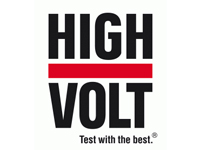The largest testing laboratory in the world ever built in a single construction phase is to be completed in Dammam by 2021. That will make the ‘GCC Electrical Testing Laboratory’ (GCC ETL) the largest testing laboratory in the entire Middle East region.
The advantage of a dedicated local testing laboratory is that manufacturers of electrical equipment from the member states of the Gulf Cooperation Council and the Middle East region and possibly in other regions.
All these potential customers can then have their products tested by an independent test service provider under virtually real use conditions for extended periods and/or under laboratory conditions.
Imported electrical equipment can also be subjected to comprehensive quality control there in accordance with the IEC standards or other established international standards. Besides the high and medium-voltage test bays, the GCC ETL will also offer high power electrical testing, low voltage testing, calibration services, EMC tests (electromagnetic compatibility) and mechanical tests. In testing laboratory operations, the GCC ETL will cooperate closely with CESI, one of the largest testing service providers and consultants for electrical system operation worldwide.
GCC testing laboratory can be of enduring support for technical researches for Universities with engineering curriculum, and will support the industry in the region by giving opportunities to the local manufacturers to test and improve their product performance.
The project volume for supply and construction of high-voltage test systems is roughly EUR 20 million. The original idea for a testing laboratory of this immense scale was first conceived in 2007, with HIGHVOLT submitting an initial offer as part of a feasibility study in 2011. The project was officially launched at the Middle East Electricity (MEE) trade fair in Dubai, 2016.
During the following years, numerous technical consultations were held with GCC ETL and CESI, which provided support for detailed technical planning as an independent testing laboratory. Detailed and modified offers were submitted based on these consultations, until the contract was finally awarded to HIGHVOLT and CEPCO in 2019.
The laboratory offers customers a range of test bays where many different tests can be conducted on operating equipment like transformers, cables and switchgears. The biggest and most important part will be the high voltage test laboratory, which will be almost the size of a soccer pitch.
It is designed for dielectric testing of high voltage products like transformers, switchgears, circuit breakers, measuring transducers, isolators etc. and will contain various AC voltage test systems for voltages up to 1200 kV and an impulse voltage test system for over 3000 kV, as well as a three-phase AC voltage test system with a capacity of 4000 kVA specifically for testing power transformers.
The high-voltage test bay will also contain a huge electromagnetically shielded cabin containing an AC voltage resonance test system with variable inductance up to 800 kV and a high-current test system for currents up to 6000 A for cable testing. This will largely be used for multi-day type tests of high-voltage cables.
One special feature will be the test bays for isolator contamination testing, consisting of three separate test chambers with multiple AC voltage test systems for voltages up to 400 kV. They simulate realistic contamination conditions like condensation, salt deposits and moisture, and expose the equipment under assessment to long-term loads from operating voltages and over voltages.
The scope of delivery also includes test systems for on‑site‑ testing. In particular, this includes a mobile AC voltage resonance test system with variable frequency for testing long medium, high and very high voltage cables after laying and a similar system for testing complete transformer stations with switchgears, transformers and short supply cables.


